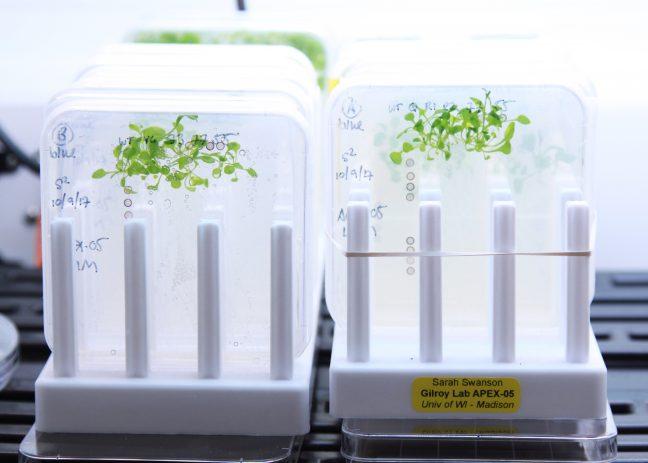The U.S. heavily relies on corn ethanol as a bioenergy source, or a source of energy that comes from plants, according to University of Illinois and Urbana-Champaign postdoctoral researcher Bethaney Blakely. But this method is not the most climate-friendly option, according to Blakely — her research focuses on alternative sources of bioenergy.
The Department of Atmospheric and Oceanic Sciences invited Blakely to speak as part of their Climate, People and Environment Program Feb. 21. Blakely’s seminar centered around alternative bioenergy sources to maize or corn ethanol.
As corn ethanol dominates as the current bioenergy source in the U.S., other sources of bioenergy may provide additional ecosystem services, which support the surrounding environment. Blakely researches these bioenergy sources, otherwise called alternative feedstocks, and their impact on carbon storage and the climate.
If alternative feedstocks are replacing corn ethanol as a main bioenergy source, they should be more productive, grow in places corn cannot and provide benefits to their surrounding environments, Blakely said. One of these benefits is carbon storage.
In two studies, Blakely said she identified multiple other bioenergy sources from plants such as miscanthus, native prairie and sorghum to compare their carbon storage ability. Blakely then classified the plants as either a carbon sink or a carbon source.
Crops that are carbon sinks take up carbon dioxide, a greenhouse gas, from the atmosphere. But crops that are carbon sources release more carbon dioxide than they absorb, meaning they contribute to climate change.
Blakely said her research found that perennial crops are generally a carbon sink and annual crops are generally a carbon source.
Another co-benefit Blakely said to consider is the net radiation and albedo, or the ability of surfaces to reflect sunlight. A lower albedo equals a higher net radiation, causing a warmer surface and more global warming. In her research, Blakely has found that the effect of albedo on carbon sinks and carbon sources is relatively small compared to carbon cycling, or the process of carbon leaving and re-entering plants.
In final conclusions from this research, Blakely found that, compared to corn, perennial grass did offer some climate benefits in carbon storage, but sorghum did not.
Bioenergy through alternative feedstocks is a crucial component of creating a lower carbon economy, Blakely said. Her research shows the importance of alternative feedstocks to corn for carbon storage.


